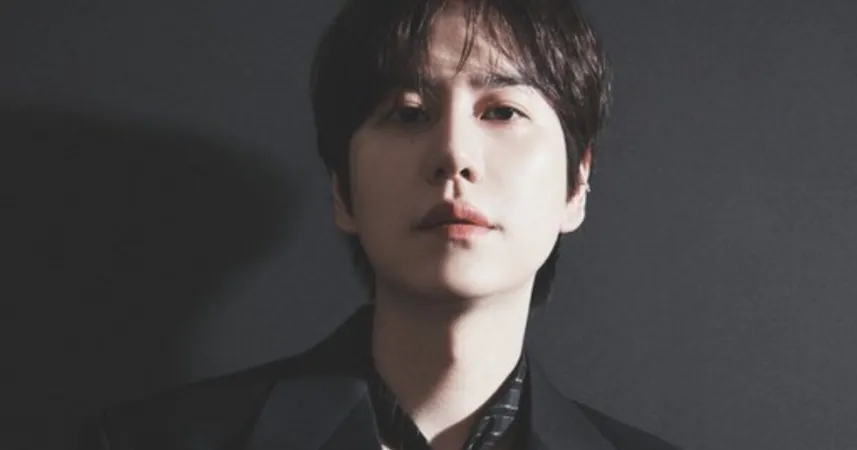
Alarming Rise of 'Drunkorexia': Experts Urge Awareness and Intervention
2024-12-08
Author: Li
Introduction
A growing trend among young women, ominously dubbed 'drunkorexia,' is raising flags among medical professionals as it combines dangerous dieting with binge drinking. This condition, where individuals skip meals to compensate for calories consumed from alcohol, is being pushed into the spotlight as a potential new eating disorder.
Prevalence and Statistics
Recent research reveals that a staggering one in three female students regularly opt to reduce their food intake while increasing their physical activity to mitigate the calories gained from drinking. Studies estimate that the prevalence of drunkorexia can range between 14% and an alarming 46%, predominantly affecting women and teenagers.
Health Risks
Experts are concerned that this unhealthy behavior exposes individuals to serious health risks such as cardiovascular issues, malnutrition, and dehydration. A comprehensive review of studies focused on adolescents and young adults indicates that drunkorexia should not just be viewed as a behavioral choice, but rather classified as both an eating disorder and a form of alcohol abuse.
Expert Insights
Lead researcher Elena Andrade Gomez, a professor at La Rioja University in Spain, emphasizes that drunkorexia needs to gain formal recognition as a distinct disorder deserving a coordinated, multidisciplinary treatment approach. 'Although the term 'drunkorexia' lacks formal clinical definition, it captures a troubling behavior pattern that intertwines calorie restriction, excessive exercise, and high alcohol consumption,' she said.
Emotional Contributors
Moreover, the study, published in the journal Nutrients, uncovered significant emotional contributors to this disorder, including stress, anxiety, and a desire for novelty. Gomez highlights the need for future research to delve deeper into the psychological factors underpinning drunkorexia, such as low self-esteem and distorted body image perceptions.
Treatment Approaches
'Treating drunkorexia effectively calls for a holistic strategy—one that concurrently addresses both disordered eating and substance abuse,' she explains. The complexity of this disorder necessitates a collaborative effort that involves healthcare providers specializing in medical care, nutritional counseling, and mental health support.
Public Health Implications
With the potential for serious nutritional deficiencies and other health complications, experts urge public health authorities to develop preventive strategies and incorporate social media campaigns geared towards educating youth about the dangers of drunkorexia.
Conclusion
Drunkorexia isn’t just a troubling trend—it's a public health concern that requires immediate attention and proactive intervention. As awareness grows, so does the imperative for comprehensive treatment solutions to combat this worrying phenomenon.

 Brasil (PT)
Brasil (PT)
 Canada (EN)
Canada (EN)
 Chile (ES)
Chile (ES)
 España (ES)
España (ES)
 France (FR)
France (FR)
 Hong Kong (EN)
Hong Kong (EN)
 Italia (IT)
Italia (IT)
 日本 (JA)
日本 (JA)
 Magyarország (HU)
Magyarország (HU)
 Norge (NO)
Norge (NO)
 Polska (PL)
Polska (PL)
 Schweiz (DE)
Schweiz (DE)
 Singapore (EN)
Singapore (EN)
 Sverige (SV)
Sverige (SV)
 Suomi (FI)
Suomi (FI)
 Türkiye (TR)
Türkiye (TR)